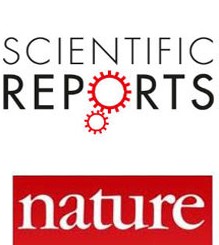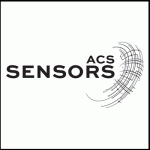 Haiying Liu (Chem), Ashutosh Tiwari (Chem), Ranjit Pati (Physics), along with graduate students Rashmi Adhikari, Mingxi Fang, Nethaniah Dorh, Cong Li, Jingtuo Zhang and Meghath Jaishi, published a paper titled “Near-Infrared Fluorescent Probes with Large Stokes Shifts for Sensing Zn(II) Ions in Living Cells” in ACS Sensors.
Haiying Liu (Chem), Ashutosh Tiwari (Chem), Ranjit Pati (Physics), along with graduate students Rashmi Adhikari, Mingxi Fang, Nethaniah Dorh, Cong Li, Jingtuo Zhang and Meghath Jaishi, published a paper titled “Near-Infrared Fluorescent Probes with Large Stokes Shifts for Sensing Zn(II) Ions in Living Cells” in ACS Sensors.
Heather Powers is a Associate Director of Digital Content in University Marketing and Communications (UMC) at Michigan Technological University. Powers is responsible for all content aspects of UMC's recruitment and reputation web properties and proactively improves and maintains quality, benchmarks, and tests to innovate key sites and pages to meet integrated marketing, brand awareness and reputation, and recruitment goals.
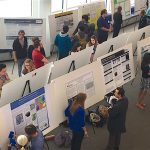 Kelci Mohrman research, The Geminga Pulsar Wind Nebula and the Positron Excess, was presented at Michigan Tech’s 2017 Undergraduate Research Symposium this past week. Mohrman looked to identify and model the gamma-ray emission of the Geminga PWN in GeV energies using data from the Fermi Space Telescope in order to determine the potential contribution to the local electron and positron flux.
Kelci Mohrman research, The Geminga Pulsar Wind Nebula and the Positron Excess, was presented at Michigan Tech’s 2017 Undergraduate Research Symposium this past week. Mohrman looked to identify and model the gamma-ray emission of the Geminga PWN in GeV energies using data from the Fermi Space Telescope in order to determine the potential contribution to the local electron and positron flux.
Geminga (PSR J0633+1746) is a rotating neutron star, called a pulsar, located in the direction of the constellation Gemini. Surrounding the pulsar itself is a pulsar wind nebula (PWN), which accelerates particles to high energies and emits constant gamma radiation. It has been suggested that the particles accelerated by the Geminga PWN could explain the observed excess in the locally measured positron flux, though it was also proposed that this anomalous overabundance of positrons could be a consequence of the annihilation or decay of dark matter.
The Undergraduate Research Symposium highlights the amazing cutting-edge research being conducted on Michigan Tech’s campus by some of our best and brightest undergraduate students.
The students showcasing their work today have spent a significant portion of the past year working alongside Michigan Tech faculty and graduate students to explore, discover and create new knowledge. They’ve spent long hours in the lab or out in the field designing experiments, gathering data, creating new models and testing hypotheses. They’ve applied their classroom knowledge in new and sometimes unexpected ways, and developed new skills that will propel them forward in their careers.
Advisor: Dr. Petra Huentemeyer
Funding: SURF
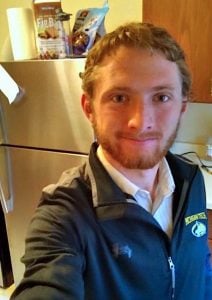 Kaelan Anderson’s research, Studying the Properties of Free Tropospheric Aerosols in the Mid Atlantic, was presented at Michigan Tech’s 2017 Undergraduate Research Symposium this past week. With the assistance of Claudio Mazzoleni, Anderson looked at if the long term research of atmospheric aerosols is necessary to accurately understand and predict a variety of atmospheric phenomena. A relevant example is black carbon, and its forcing effects on the climate.
Kaelan Anderson’s research, Studying the Properties of Free Tropospheric Aerosols in the Mid Atlantic, was presented at Michigan Tech’s 2017 Undergraduate Research Symposium this past week. With the assistance of Claudio Mazzoleni, Anderson looked at if the long term research of atmospheric aerosols is necessary to accurately understand and predict a variety of atmospheric phenomena. A relevant example is black carbon, and its forcing effects on the climate.
The Undergraduate Research Symposium highlights the amazing cutting-edge research being conducted on Michigan Tech’s campus by some of our best and brightest undergraduate students.
The students showcasing their work today have spent a significant portion of the past year working alongside Michigan Tech faculty and graduate students to explore, discover and create new knowledge. They’ve spent long hours in the lab or out in the field designing experiments, gathering data, creating new models and testing hypotheses. They’ve applied their classroom knowledge in new and sometimes unexpected ways, and developed new skills that will propel them forward in their careers.
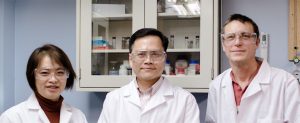 Yoke Khin Yap’s research in high-brightness fluorophores earned him a place in Michigan Tech’s Research Magazine in the article “Commercialization“.
Yoke Khin Yap’s research in high-brightness fluorophores earned him a place in Michigan Tech’s Research Magazine in the article “Commercialization“.
“We are expecting a huge impact to the field of flow cytometery…This will mean a lot for cancer and stem cell research.”
High-brightness fluorophores are dyes that fluoresce in different colors and degrees of brightness. They are used in machines called flow cytometers to detect diseased cells in blood.
A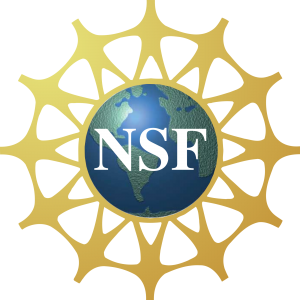 new research grant marks more than 30 years of continuous support of NSF to Professor Alex Kostinski.
new research grant marks more than 30 years of continuous support of NSF to Professor Alex Kostinski.
In the scientific community, Kostinski is well-known as a “Scientist for All Seasons” due to his somewhat nomadic interests in diverse areas of physics including fluid mechanics, atmospheric science, radar meteorology, astronomy, optics and semiconductor physics. Specifically, the results of his research have broad impacts on cloud physics resulting in highly-cited publications in Nature, Phys Rev Letts, Geophys Res Letts. etc.
Kostinski was the recipient of the 2004 Michigan Tech Research Award and has helped the department establish a well-funded research group in atmospheric physics which includes Raymond Shaw, Will Cantrell, and Claudio Mazzoleni.
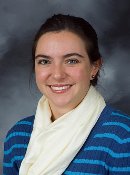 Physics student Teresa Wilson placed 2nd in the Oral Presentation Competition. Below is a complete list of winners.
Physics student Teresa Wilson placed 2nd in the Oral Presentation Competition. Below is a complete list of winners.
The 2017 Graduate Research Colloquium (GRC) was held on February 15-16 in the Memorial Union Ballroom. There were oral and poster presentation. The banquet was held on the evening of February 16
ABC 10’s Keweenaw Bureau Reporter Rick Allen reported on the colloquium. Read more and watch the video at ABC10 UP, by Rick Allen.
Complete list of winners:
Oral Presentation Competition
- 1st Place: Kevin Sunderland, Department of Biomedical Engineering
- 2nd Place: Teresa Wilson, Department of Physics
- 3rd Place: Andrew Chapp, Department of Kinesiology and Integrative Physiology
- Most Attended: Muraleekrishnan Menon, Department of Mechanical Engineering – Engineering Mechanics
- Most Attended: Niranjan Miganakallu, Department of Mechanical Engineering – Engineering Mechanics
Poster Presentation Competition
- 1st Place: Matthew Kilgas, Department of Kinesiology and Integrative Physiology
- 2nd Place: Brian Page, Department of Mechanical Engineering – Engineering Mechanics
- 3rd Place: Zichen Qian, Department of Biomedical Engineering
- People’s Choice: Mugdha Priyadarshini, Department of Civil and Environmental Engineering
Graduate Student Service Awards
- Gorkem Asilioglu, Department of Computer Science
- Hossein Tavakoli, Department of Civil and Environmental Engineering
- Kate Glodowski, Department of Kinesiology and Integrative Physiology
- Erin Pischke, Department of Social Sciences
The GRC is held each year by the Graduate Student Government at Michigan Tech.
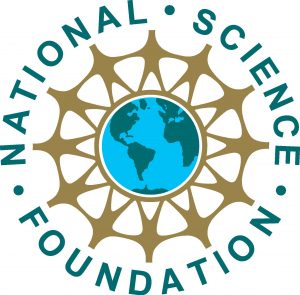 Alexander Kostinski (Physics/EPSSI) is the principal investigator on a project that has received a $156,119 research and development grant from the National Science Foundation.
Alexander Kostinski (Physics/EPSSI) is the principal investigator on a project that has received a $156,119 research and development grant from the National Science Foundation.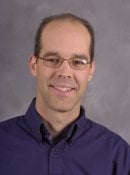 This week’s Dean’s Teaching Showcase recipient is Raymond Shaw from the Department of Physics, winner of the 2016 Michigan Tech Research Award. Shaw was selected by College of Sciences and Arts Dean Bruce Seely precisely because his efforts in the classroom forcefully demonstrate the unity of teaching and research and signal no necessary tension exists between these two core faculty responsibilities.
This week’s Dean’s Teaching Showcase recipient is Raymond Shaw from the Department of Physics, winner of the 2016 Michigan Tech Research Award. Shaw was selected by College of Sciences and Arts Dean Bruce Seely precisely because his efforts in the classroom forcefully demonstrate the unity of teaching and research and signal no necessary tension exists between these two core faculty responsibilities.
Seely says “That past fall, the Physics Department honored Ray for the Research Award in the manner it had recognized several other research award recipients — assigning them to teach a large lecture class. In Ray’s case, this was PH 2200, which covered electricity and magnetism for 390 students. He discovered large classes requires ‘one part professor and two parts theater director.’
“Fortunately, he enjoyed significant assistance from a demo crew that prepared attention-grabbing experiments suitable for classroom use, a dedicated assistant who managed iClicker content and online homework systems, the office staff that printed and organized 400 exam booklets every few weeks, and the physics learning center coaches who assisted students with homework and exams.
“At the end of the term, student evaluations ranked the class at 4.36 on the seven dimensions reported on the evaluation form. This is a very good score for a large introductory class.
“Ray identified several keys to this success, including support from Physics faculty, John Jaszczak, Wil Slough, and Bob Weidman, with extensive experience in large-lecture sections, who shared lecture materials and staging tips, and provided occasional pep talks. In addition, help from the testing center and IT staff members further confirmed that such courses are taught by a team, not just a professor.
“When asked about his contributions to making this class work, Ray noted that because big classes can seem impersonal, he ‘took it as a challenge to let my students get to know me as a person.’
“He spiced up lectures with personal anecdotes related to the course, like his rapidly-flashing blinker (RC time constants) or electromagnetic phenomena in his research. Other times he used more random elements related to life in general. He once asked students to provide iClicker responses on possible ways of disciplining his son for breaking the TV. (Corporal punishment won, but he did not take that advice) His point — students respond when taught by faculty who are real people and who care about them. As one student commented, ‘Every class was enjoyable due to the somewhat ‘nerdy’ humor followed by funny references to his son (absolutely hysterical).’
“But perhaps as important was Ray’s enthusiasm for the class. Students clearly recognized his passion and excitement about physics. One student said, ‘Your enthusiasm for Physics is inspiring. It makes the lectures much more enjoyable.’ Another added, ‘Your enthusiasm was great. You were always passionate and in a good mood.’
“This might not seem like rocket science, but teaching seems to work better in environments where faculty exhibit their enthusiasm about their field and show how they care about students and their learning.”
Shaw will be recognized at an end-of-term luncheon with 11 other showcase members, and is now eligible for one of three new teaching awards to be given by the William G. Jackson Center for Teaching and Learning this summer recognizing introductory or large class teaching, innovative or outside the classroom teaching methods, or work in curriculum and assessment.
by Michael Meyer, Director, William G. Jackson Center for Teaching and Learning
Miguel Levy (Physics/MSE) and Dolendra Karki (Physics) authored a paper published this month in Scientific Reports — Nature, entitled “Nonreciprocal Transverse Photonic Spin and Magnetization-Induced Electromagnetic Spin-Orbit Coupling.”
Will Cantrell, coordinator of the Summer Undergraduate Research Fellowship program, will conduct a workshop for students on the SURF application process, including writing an effective SURF proposal. The workshop will take place at 6 p.m. tomorrow (Jan. 12) in Fisher 130.
Faculty and staff are encouraged to notify students interested in applying for SURF funding to attend. This workshop will cover the same material as the one presented in December.
The deadline for SURF applications is 4 p.m. Jan. 27.
